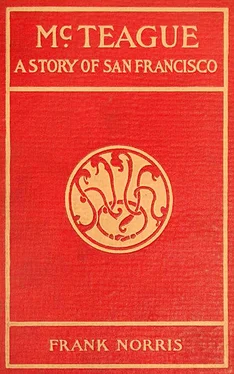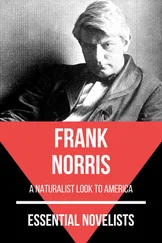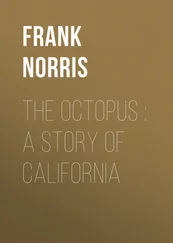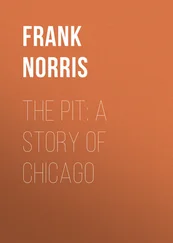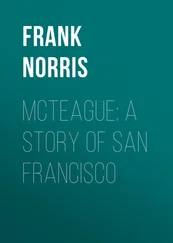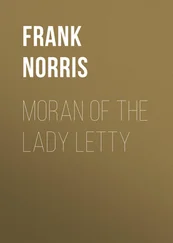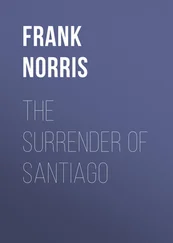Frank Norris - McTEAGUEA Story of San Franciscoby
Здесь есть возможность читать онлайн «Frank Norris - McTEAGUEA Story of San Franciscoby» весь текст электронной книги совершенно бесплатно (целиком полную версию без сокращений). В некоторых случаях можно слушать аудио, скачать через торрент в формате fb2 и присутствует краткое содержание. Год выпуска: 1899, Жанр: Классическая проза, на английском языке. Описание произведения, (предисловие) а так же отзывы посетителей доступны на портале библиотеки ЛибКат.
- Название:McTEAGUEA Story of San Franciscoby
- Автор:
- Жанр:
- Год:1899
- ISBN:нет данных
- Рейтинг книги:5 / 5. Голосов: 1
-
Избранное:Добавить в избранное
- Отзывы:
-
Ваша оценка:
- 100
- 1
- 2
- 3
- 4
- 5
McTEAGUEA Story of San Franciscoby: краткое содержание, описание и аннотация
Предлагаем к чтению аннотацию, описание, краткое содержание или предисловие (зависит от того, что написал сам автор книги «McTEAGUEA Story of San Franciscoby»). Если вы не нашли необходимую информацию о книге — напишите в комментариях, мы постараемся отыскать её.
McTEAGUEA Story of San Franciscoby — читать онлайн бесплатно полную книгу (весь текст) целиком
Ниже представлен текст книги, разбитый по страницам. Система сохранения места последней прочитанной страницы, позволяет с удобством читать онлайн бесплатно книгу «McTEAGUEA Story of San Franciscoby», без необходимости каждый раз заново искать на чём Вы остановились. Поставьте закладку, и сможете в любой момент перейти на страницу, на которой закончили чтение.
Интервал:
Закладка:
"But I never take sugar in my tea."
"But it's rather cold, and I've spilled it — almost all of it."
"I'll drink it from the saucer." Old Grannis had drawn up his armchair for her.
"Oh, I shouldn't. This is — this is SO — You must think ill of me." Suddenly she sat down, and resting her elbows on the table, hid her face in her hands.
"Think ILL of you?" cried Old Grannis, "think ILL of you? Why, you don't know — you have no idea — all these years — living so close to you, I–I—" he paused suddenly. It seemed to him as if the beating of his heart was choking him.
"I thought you were binding your books to-night," said Miss Baker, suddenly, "and you looked tired. I thought you looked tired when I last saw you, and a cup of tea, you know, it — that — that does you so much good when you're tired. But you weren't binding books."
"No, no," returned Old Grannis, drawing up a chair and sitting down. "No, I — the fact is, I've sold my apparatus; a firm of booksellers has bought the rights of it."
"And aren't you going to bind books any more?" exclaimed the little dressmaker, a shade of disappointment in her manner. "I thought you always did about four o'clock. I used to hear you when I was making tea."
It hardly seemed possible to Miss Baker that she was actually talking to Old Grannis, that the two were really chatting together, face to face, and without the dreadful embarrassment that used to overwhelm them both when they met on the stairs. She had often dreamed of this, but had always put it off to some far-distant day. It was to come gradually, little by little, instead of, as now, abruptly and with no preparation. That she should permit herself the indiscretion of actually intruding herself into his room had never so much as occurred to her. Yet here she was, IN HIS ROOM, and they were talking together, and little by little her embarrassment was wearing away.
"Yes, yes, I always heard you when you were making tea," returned the old Englishman; "I heard the tea things. Then I used to draw my chair and my work-table close to the wall on my side, and sit there and work while you drank your tea just on the other side; and I used to feel very near to you then. I used to pass the whole evening that way."
"And, yes — yes — I did too," she answered. "I used to make tea just at that time and sit there for a whole hour."
"And didn't you sit close to the partition on your side? Sometimes I was sure of it. I could even fancy that I could hear your dress brushing against the wall-paper close beside me. Didn't you sit close to the partition?"
"I–I don't know where I sat."
Old Grannis shyly put out his hand and took hers as it lay upon her lap.
"Didn't you sit close to the partition on your side?" he insisted.
"No — I don't know — perhaps — sometimes. Oh, yes," she exclaimed, with a little gasp, "Oh, yes, I often did."
Then Old Grannis put his arm about her, and kissed her faded cheek, that flushed to pink upon the instant.
After that they spoke but little. The day lapsed slowly into twilight, and the two old people sat there in the gray evening, quietly, quietly, their hands in each other's hands, "keeping company," but now with nothing to separate them. It had come at last. After all these years they were together; they understood each other. They stood at length in a little Elysium of their own creating. They walked hand in hand in a delicious garden where it was always autumn. Far from the world and together they entered upon the long retarded romance of their commonplace and uneventful lives.
CHAPTER 18
That same night McTeague was awakened by a shrill scream, and woke to find Trina's arms around his neck. She was trembling so that the bed-springs creaked.
"Huh?" cried the dentist, sitting up in bed, raising his clinched fists. "Huh? What? What? What is it? What is it?"
"Oh, Mac," gasped his wife, "I had such an awful dream. I dreamed about Maria. I thought she was chasing me, and I couldn't run, and her throat was — Oh, she was all covered with blood. Oh-h, I am so frightened!"
Trina had borne up very well for the first day or so after the affair, and had given her testimony to the coroner with far greater calmness than Heise. It was only a week later that the horror of the thing came upon her again. She was so nervous that she hardly dared to be alone in the daytime, and almost every night woke with a cry of terror, trembling with the recollection of some dreadful nightmare. The dentist was irritated beyond all expression by her nervousness, and especially was he exasperated when her cries woke him suddenly in the middle of the night. He would sit up in bed, rolling his eyes wildly, throwing out his huge fists — at what, he did not know — exclaiming, "What what—" bewildered and hopelessly confused. Then when he realized that it was only Trina, his anger kindled abruptly.
"Oh, you and your dreams! You go to sleep, or I'll give you a dressing down." Sometimes he would hit her a great thwack with his open palm, or catch her hand and bite the tips of her fingers. Trina would lie awake for hours afterward, crying softly to herself. Then, by and by, "Mac," she would say timidly.
"Huh?"
"Mac, do you love me?"
"Huh? What? Go to sleep."
"Don't you love me any more, Mac?"
"Oh, go to sleep. Don't bother me."
"Well, do you LOVE me, Mac?"
"I guess so."
"Oh, Mac, I've only you now, and if you don't love me, what is going to become of me?"
"Shut up, an' let me go to sleep."
"Well, just tell me that you love me."
The dentist would turn abruptly away from her, burying his big blond head in the pillow, and covering up his ears with the blankets. Then Trina would sob herself to sleep.
The dentist had long since given up looking for a job. Between breakfast and supper time Trina saw but little of him. Once the morning meal over, McTeague bestirred himself, put on his cap — he had given up wearing even a hat since his wife had made him sell his silk hat — and went out. He had fallen into the habit of taking long and solitary walks beyond the suburbs of the city. Sometimes it was to the Cliff House, occasionally to the Park (where he would sit on the sun-warmed benches, smoking his pipe and reading ragged ends of old newspapers), but more often it was to the Presidio Reservation. McTeague would walk out to the end of the Union Street car line, entering the Reservation at the terminus, then he would work down to the shore of the bay, follow the shore line to the Old Fort at the Golden Gate, and, turning the Point here, come out suddenly upon the full sweep of the Pacific. Then he would follow the beach down to a certain point of rocks that he knew. Here he would turn inland, climbing the bluffs to a rolling grassy down sown with blue iris and a yellow flower that he did not know the name of. On the far side of this down was a broad, well-kept road. McTeague would keep to this road until he reached the city again by the way of the Sacramento Street car line. The dentist loved these walks. He liked to be alone. He liked the solitude of the tremendous, tumbling ocean; the fresh, windy downs; he liked to feel the gusty Trades flogging his face, and he would remain for hours watching the roll and plunge of the breakers with the silent, unreasoned enjoyment of a child. All at once he developed a passion for fishing. He would sit all day nearly motionless upon a point of rocks, his fish-line between his fingers, happy if he caught three perch in twelve hours. At noon he would retire to a bit of level turf around an angle of the shore and cook his fish, eating them without salt or knife or fork. He thrust a pointed stick down the mouth of the perch, and turned it slowly over the blaze. When the grease stopped dripping, he knew that it was done, and would devour it slowly and with tremendous relish, picking the bones clean, eating even the head. He remembered how often he used to do this sort of thing when he was a boy in the mountains of Placer County, before he became a car-boy at the mine. The dentist enjoyed himself hugely during these days. The instincts of the old-time miner were returning. In the stress of his misfortune McTeague was lapsing back to his early estate.
Читать дальшеИнтервал:
Закладка:
Похожие книги на «McTEAGUEA Story of San Franciscoby»
Представляем Вашему вниманию похожие книги на «McTEAGUEA Story of San Franciscoby» списком для выбора. Мы отобрали схожую по названию и смыслу литературу в надежде предоставить читателям больше вариантов отыскать новые, интересные, ещё непрочитанные произведения.
Обсуждение, отзывы о книге «McTEAGUEA Story of San Franciscoby» и просто собственные мнения читателей. Оставьте ваши комментарии, напишите, что Вы думаете о произведении, его смысле или главных героях. Укажите что конкретно понравилось, а что нет, и почему Вы так считаете.
